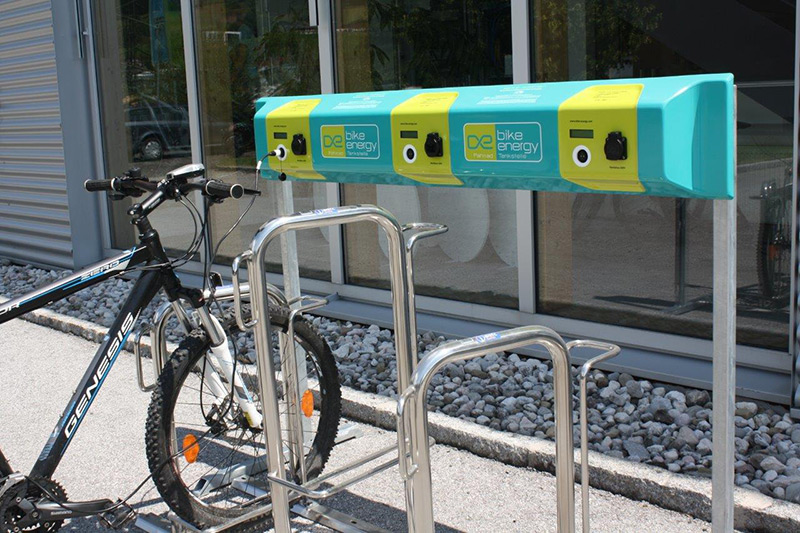Electric Bike Grant Gets Great Response From Swedish Public
 By Richard Schrubb
By Richard Schrubb
Cities and countries around the world are facing a dual problem: their transport infrastructure is becoming congested and that is causing pollution that in turn poisons the population and is adding to humanity’s contribution to climate change.
One solution has been to encourage businesses and the general public to use electric cars, vans and trucks.
Overall the take-up has been encouraging with growing numbers going electric both in logistics and among private individuals.
Though this is helping clean up cities’ air and may well be reducing global carbon emissions to some extent, electric car, truck and van subsidies are not reducing congestion that is one of the major factors behind cities’ bad air.
Could subsidising e-bikes be the answer to this issue?
Sweden Takes the Leap
With some of its landmass north of the Arctic Circle, Sweden isn’t the first place in the world where one would think that e-bike sales would boom. The Swedish public however are hardy souls, with higher cycle use per capita than many other countries in Europe.

In the south we have a normal winter so people ride throughout the year, but in the north we get a metre of snow or more but even then many use winter tyres and ride as normal.”
Sweden is widely held as one of the leading lights in government support to reduce transportation pollution.
Nearly 4,000 e-cars were sold in 2017 in the country, a 77% growth on the year before.
On the 1st February the country launched an e-bike subsidy that can rebate a new e-bike buyer 25% of the cost of a new machine up to 20,000 Krona (around $2,278).
The programme is one billion Krona [$114 million] over three years, or roughly 350 million Krona [$39.88m] a year.
Hallqvist said, “People can backdate their claims to the 1st September 2017 and so far, 50% of the budget has been spent on 42,000 applicants.”
This amounts to more than ten times the amount of e-cars sold in 2017, suggesting the Swedish public have really taken the grant to their hearts.
Once more, a 50% uptake in just four months strongly suggests that the money will be gone long before the end of the financial year.
Hallqvist pointed out, “One of the problems with e-cars is that there isn’t the charging infrastructure, though the government is offering a 50% subsidy on home charging units”.
By comparison the e-bike user has no such complaints with the ability to get a full charge quite quickly from their mains supply.
Under the scheme the buyer pays the full price on the e-bike and is then rebated the amount with a check sent them by the government.
One of the upshots of the program has been that e-bike sales have doubled this year as against 2017.
With national elections coming up, the e-bike subsidy has been quite contentious. The opposition party running to replace the current government has made it plain that the scheme is going to be axed should they get into power.
What would enable this to be challenged is some good numbers on what the e-bike subsidy has done to the way the public uses the roads.
Have the 42,000 applicants to the scheme reduced or stopped their car use altogether? Hallqvist said that he had been pressing for an analysis of modal shift but to date has no hard and fast figures.
He quipped, “I was talking to a taxi driver in Stockholm yesterday and he said it was mayhem for bikes! There are definitely more and more people using bicycles instead of cars in Sweden, though I just don’t know how many of them are e-bikes”.
Other Countries Considering Similar Grants
Over the last year there has been warm words emanating from the UK government as to some form of e-bike subsidy.
According to the latest mood music it seems to be leaning toward an e-cargo-bike subsidy to reduce the air pollution from logistics on major cities’ streets.
Speaking in a recent House of Commons debate, UK Minister of Transport Jesse Norman said, “It is important to draw a distinction between e-bikes, the price of which is falling, the diversity of which is increasing and the market for which is working quite satisfactorily in many ways – although I can understand that colleagues recently discovering them might like a subsidy from the Government – and e-cargo bikes, which have a very important potential public purpose in substituting for diesel-using small vans, especially in urban contexts.”
It is clear however that the cycling public likes a nice check from the government toward their favourite mode of transport!
Particularly if modal shift can be proven from such grants and tax breaks, judging by the Swedish experience an e-bike grant could well support more people getting off four wheels and onto two in large numbers.
By Richard Schrubb
P.S. Don’t forget to join the Electric Bike Report community for updates from the electric bike world, plus ebike riding and maintenance tips!




